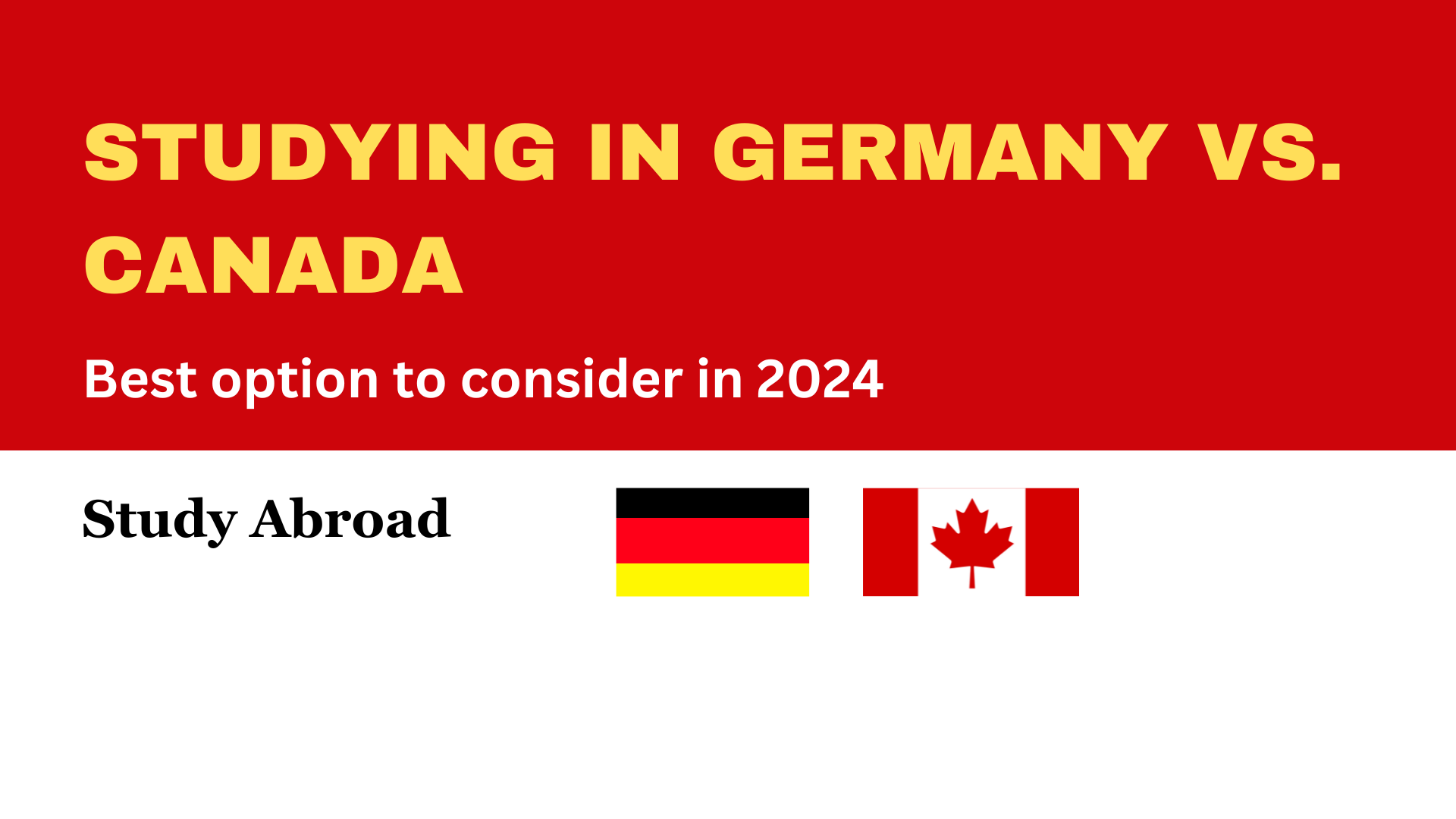Are you an international student looking to pursue higher education abroad in 2024? If so, you might be considering Germany and Canada as potential options. Both countries are known for their quality education, diverse culture, and excellent standard of living. However, deciding between the two can be a daunting task. In this blog post, we will explore the reasons why you should consider studying in Germany or Canada in 2024. We will compare the two options based on various factors and conclude which option might be best for international students like yourself.
Also read New Zealand Work VISA 2024 Application Process and Requirements
- Affordability: Germany’s Advantage
One of the primary considerations for many international students is the cost of education. Germany typically offers lower tuition fees compared to Canada, especially for public universities. Additionally, living expenses in Germany can be more affordable, including accommodation, food, and transportation.
- Work Opportunities: Canada’s Strength
Canada provides more generous work opportunities for international students compared to Germany. With its post-study work permits, students can gain valuable work experience after completing their studies, potentially leading to permanent residency.
- Language Barrier: English Dominance in Canada
For students who are more comfortable with English, Canada might be the preferred choice. While Germany offers many programs in English, the predominant language is German, which could pose a challenge for some students.
- Diversity and Inclusion: Canada’s Multiculturalism
Canada is celebrated for its multiculturalism and inclusivity. Students from various backgrounds can feel welcome and find communities that resonate with them. This diversity enriches the learning experience and fosters global perspectives.
- Quality of Education: Both Countries Excel
Both Germany and Canada boast excellent educational standards. Germany is renowned for its engineering, automotive and technology programs, while Canada is popular for its research and innovation in various fields like healthcare and finance.
- Research Opportunities: Canada’s Research Powerhouse
Canada invests significantly in research and innovation, offering ample opportunities for students to engage in cutting-edge research across disciplines. Its universities are well-equipped with state-of-the-art facilities and resources.
- Visa Process: Germany’s Simplicity
Germany’s visa and immigration processes are generally straightforward compared to Canada’s. The German government actively encourages international students and provides streamlined pathways for obtaining visas and residence permits.
Also read How to Get a Study Visa for Ireland: A Step-by-Step Guide
- Climate and Geography: Consider Your Preferences
Canada’s vast geographical landscape offers diverse climates, from temperate on the west coast to harsh winters in the north. In contrast, Germany generally has a milder climate, with distinct seasons but less extreme weather conditions.
- Job Market and Opportunities: Canada’s Vibrancy
Canada’s economy is robust and diverse, offering ample job opportunities for skilled graduates. With its growing industries in technology, healthcare, and finance, students may find exciting career prospects post-graduation.
- Cultural Experience: Explore Your Interests
Both Germany and Canada have rich cultural heritage and vibrant cities to explore. Whether you’re drawn to Germany’s historical landmarks or Canada’s natural wonders, studying abroad offers a chance to immerse yourself in new experiences and traditions.
- Immigration Pathways
Germany offers various immigration pathways for international students to stay and work in the country after graduation, including the EU Blue Card for skilled professionals. Canada’s Express Entry system and Provincial Nominee Programs provide pathways to permanent residency for eligible graduates.
Which Option is Best for You?
Choosing between studying in Germany and Canada in 2024 depends on your individual preferences, academic goals, and career aspirations. If you are looking for a more affordable option with strong research opportunities and a central location in Europe, Germany might be the ideal choice for you. On the other hand, if you prefer an English-speaking environment with diverse job prospects and a high quality of life, Canada could be the perfect destination for your studies. Ultimately, both countries offer unique advantages for international students, and the decision should be based on thorough research and consideration of your personal priorities. Good luck with your decision, and may your international education journey be fulfilling and successful!

